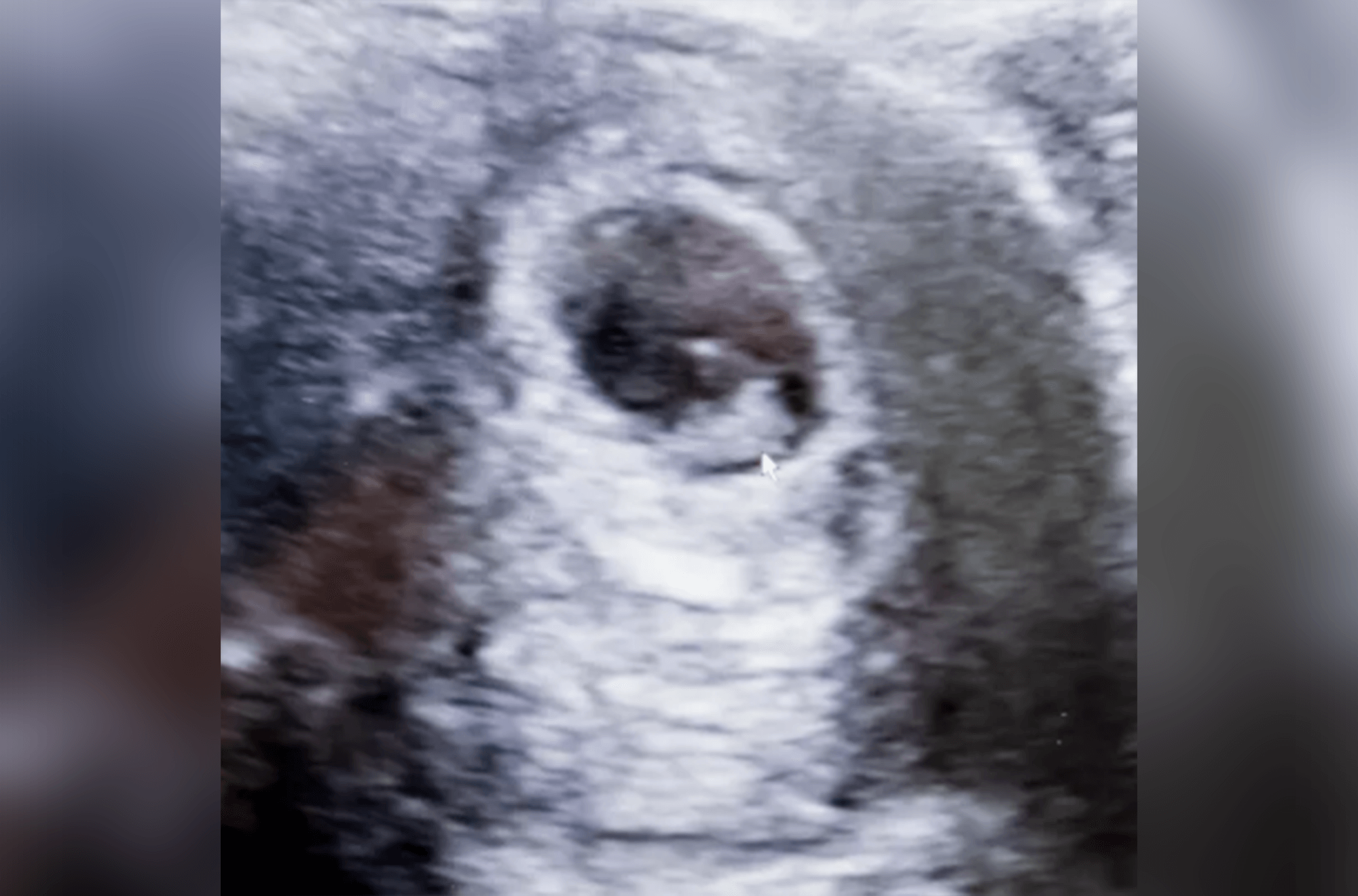
An ultrasound of a 6-week embryo. The small tadpole shape in the “eye” of the scan is the embryo.
Ask Google: at what stage does a fetus have a heart?
The response will be a packed webpage full of information from a long list of sources, the great majority not clinical. And the answers all say something totally different, most of them wrong. Here is the correct answer:
An embryo of six weeks is not a fetus, and it does NOT have a heart. An embryo becomes a fetus at eight weeks, but it does not have a heart then either. A “fetal heartbeat” is only possible if a fetus already has a heart. What can be detected with some of the new, high-powered ultrasound machines is a slight “pulsing sound” in the tiny amount of tissue that will eventually develop into a heart.
That sound is “a little flutter in the area that will become the future heart of the baby,” according to Dr Saima Aftab, medical director of the Fetal Care Center at Nicklaus Children’s Hospital in Miami. This “flutter” happens because this group of cells that will later be part of the heart gains the capacity to fire electrical signals. If you put an old-fashioned stethoscope up to the woman’s belly before the heart is formed, you would not hear a heartbeat, Dr Aftab told Live Science.
The heart is only fully formed at ±17-20 weeks, when its four chambers have developed. Only then is there an actual heartbeat that can be detected on an ultrasound, according to the American College of Obstetricians and Gynecologists. (3 May 2022)
Yet between January and 24 August 2022, nine US states passed laws that ban abortions from when, they claim, a fetal heartbeat can be detected, which they say is at six weeks of pregnancy. One wonders if they couldn’t be sued for criminalising something based on false, unscientific claims.
SOURCE: LiveScience, by Rachael Rettner, 4 August 2022 + IMAGE: iStock/Getty Images Plus



